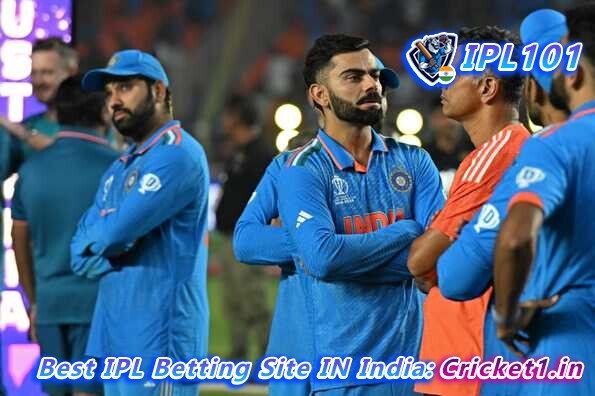
The atmosphere in the Indian cricket team’s dressing room was laden with disappointment and a silent grief following the unexpected defeat in the World Cup final against Australia on Sunday night. Rahul Dravid, India’s head coach, painstakingly described the scene post-match, detailing the sense of loss experienced by the team. “There is disappointment in the dressing room, and there is disappointment among the boys and among the support staff,” Dravid conveyed, his words heavy with the weight of the loss.
The scene he depicted was one of profound emotional struggle, made even more palpable by the fact that the loss came on home soil in such a surprising one-sided match. “There were a lot of emotions in that dressing room. It was tough to see as a coach,” stated Dravid, a stalwart of Indian cricket, who had transitioned into a coaching role after an illustrious playing career. The sight of captain Rohit Sharma struggling to contain his feelings while walking off the ground resonated with the coach, who himself found it challenging to witness his team’s anguish.
Dravid’s close relationship with his team meant that the loss was not just professional but personal. He reflected on the journey to the final, “I know how hard these guys have worked, what they’ve put in, the sacrifices they’ve made. So, it’s tough.” Nevertheless, Dravid maintained that the spirit of the sport demands acknowledgment of the superior team on the day, showcasing a balanced outlook by adding, “And the better team won on the day… We’ll learn from it. We’ll reflect. And we’ll move on, as will everyone else.”
He reserved a particular mention for the skipper, Rohit Sharma, lauding his exceptional leadership and pivotal role in promoting an aggressive brand of cricket throughout the tournament. Dravid affirmed, “He’s been an exceptional leader. Rohit’s really led this team fantastically well.” The coach praised Rohit’s dedication to ensuring every strategic discussion was thorough and that his impressive batting innings set the tone for the team’s approach.
Yet, Dravid’s own future as the head coach remains a topic of speculation, with whisperings of a potential handover to fellow former Indian cricketer, VVS Laxman. On this subject, Dravid refrained from giving a definitive answer, stating, “I haven’t thought about it… I was completely focused on this campaign.”
Beyond personal and team aspirations, Dravid addressed the broader narrative that has seen India repeatedly stumble at the final hurdle in ICC events. He rejected the notion that the team played with fear or was overtaken by nerves. “I won’t believe that we played with fear in this tournament. In this final match, we were 80 runs in 10 overs… You have to play. You start with front foot cricket.”
On the uncomfortable question of India’s decade-long wait for an ICC trophy, Dravid did not pinpoint a singular cause but reflected on the team’s mindset, stating, “I didn’t feel at any stage going into this game that there were any nerves or the guys were intimidated by the game… Just on the day we probably didn’t execute, and Australia played better than us.”
Dravid’s hard-fought efforts to explain the loss are indicative of his commitment and the poignant reality that cricket, like any sport, can be unyieldingly cruel or generously rewarding. For India, this was a time to face defeat, but as cricket fans know, it is but the prelude to a resurgence inspired by the same passion and skill that had once taken them so close to the pinnacle of the cricketing world.

